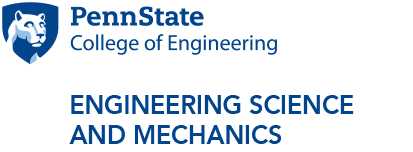Mentoring Plan for New Faculty
Background
The Department of Engineering Science and Mechanics (ESM) takes a multifaceted approach to mentoring rather than the traditional model, where a faculty advisor may be assigned as the sole mentor.
Who Can be a Mentor?
It should be recognized that, in practice, mentoring can come from many people with different expertise. Potential mentors are faculty, staff, (sometimes postdocs and students), people within and external to the University, and professional colleagues, among others. In ESM, faculty are frequently affiliated with multiple departments, colleges, and institutes. It is highly appropriate for all faculty to seek mentors from these units, particularly when advancing their research careers.
Mentoring Models
There are many different models1 related to mentoring. Faculty mentors and mentees should be aware of some of these models to broaden their perspectives on the roles of mentors/mentees.
Models include:
- Apprenticeship Model: mentor helps mentee become a valued professional (may lack personal and social components)
- Hierarchical Model: mentors choose and prepare mentees in their own likeness, unequal parties, mentors share information, mentees benefit from privileged information or status
- Citizen model: shared responsibility, neither has power or advantage over the other
- Cloning Model: mentor creates clone, directs and controls protégé, power relationship
- Co-mentoring Model: cooperative relationship that improves learning and includes protégé’s emotional needs. Equal power sharing
- Friendship Model: reciprocal relationship, peers, interpersonal bond with accessible and encouraging mentor
- Model: mentor as parent figure, safe environment for protégé to develop own skills
- Relational Model: shared discussion and ideas – emphasizes mutual engagement, authenticity and empowerment – holistic approach may appeal to women
- Peer Mentoring: peers provide emotional and professional support, share perceptions and experiences. Can provide self-acceptance and confirmation. Draws from a limited pool of experience, maybe little diversity and unidentified hierarchical relationships.
1C. T. Amelink, Mentoring and Women in engineering, SWE AWE CASEE Applying Research to Practice Resource
Expected Roles of Mentors and Mentees
Mentors
- Provide opportunities for advancement within and external to the University
- Help faculty mentees put ideas into practice, within the wider context of their chosen career path
- Academic Careers – expose faculty to promotion and tenure criteria; encourage, guide and review dossier development, including the Scholarship of:
- Teaching and Learning – discuss teaching opportunities, undergraduate and graduate course development, undergraduate and graduate research supervision, design projects, high school summer students, workshops, new educational paradigms, provide informal teaching advice, attend classes.
- Research and Creative Accomplishments – proposal development, individual versus collaborative research, publications (impact factor), conferences, presentations, innovation, intellectual property, and patent development, travel opportunities, global collaborations – Important for developing visibility and national/international reputation
- Service: Within the organization; external – professional societies, conference organization, committee service, agency service
- Meet with mentees at least twice per semester
- Facilitate networking, industry, government, agency, and professional society contacts, as appropriate
- Help faculty learn; share common topics, methodologies, and concepts;
- Work with faculty, postdocs, students and staff in a professional (sometimes personal) manner;
- Share institutional culture and values;
- Promote and support recognition opportunities, awards
- See potential and help to develop that potential;
- Inspire and challenge.
Mentees
- Be proactive in finding mentors, scheduling meetings, meeting regularly, and following up;
- Do not be afraid to ask questions to help you maximize your faculty experience;
- Establish a broad network of mentors and support for the different facets of your career.
- Attend orientation sessions offered by the Department and College
- Occupy the driving seat - do not let your mentor make all the decisions/choices;
- Seek out mentors with careers of interest to you and relevant experience.
- Set boundaries - respect time constraints – mentors are busy, use their time efficiently.
- Be aware of different mentoring styles.
ESM Department Head
- Individually mentors all faculty through the tenure and promotion processes;
- Provides guidance on department, College and University policies and procedures
- Ensures that teaching and service loads are fair and balanced
- Directs faculty to resources and workshops for advancement of teaching, research, and service
- Facilitates a positive and welcoming climate in which faculty can flourish.
Benefits of Mentoring
- Mentees: career advancement, networking, confidence, self-esteem, job satisfaction
- Mentors: professional/career development, mentees bring new ideas, experiences, energy, challenges, sense of accomplishment, continuity and legacy
- Organization: greater job satisfaction and commitment by both, connected to organization, improved retention rates



